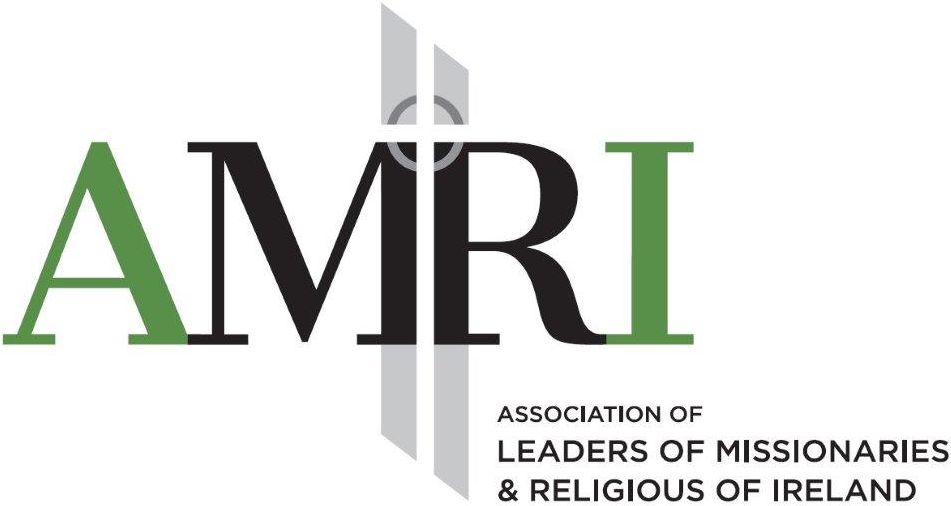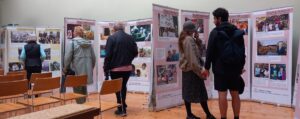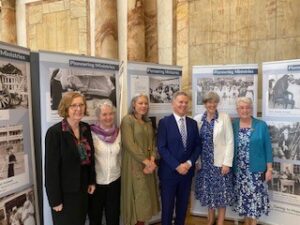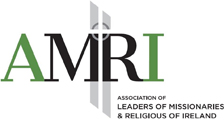Daring to Hope: Irish Religious Sisters Embracing the Unknown 1923-2023 (By Toni Pyke)
My earliest contact with religious sisters was the Sisters of Notre Dame de Namur (SND) who worked in my primary and secondary school. After graduating from university, I moved to Boston, Massachusetts, USA as a Notre Dame Mission Volunteer to work at the Archdiocese of Boston and later at the US Catholic Bishops’ Conference in Washington, DC. I was greatly impressed by the commitment and diversity of the challenging work undertaken by religious sisters from across the world. Some were lawyers representing and advocating for the human rights of the individuals and families crossing the US-Mexico border, or at public demonstrations outside the White House challenging US foreign policy. Others were at the forefront of demanding rights for workers, representing prisoners, or providing support services and sanctuary for the undocumented.
In 2001, I moved to Nigeria in West Africa, where I witnessed the pioneering work of religious sisters in challenging geographical, environmental, structural, economic, political and cultural realities. Despite the limitations, the sisters were able to circumnavigate these difficulties and respond to the critical human development necessities in remote communities, with limited resources. One such experience was travelling to visit Irish religious sisters in Papiri, nearly a 10-hour drive from the country’s capital Abuja, which at the time was only accessible via a precarious crossing on a dodgy raft across the Niger River. Yet, despite its remoteness, the village featured a school, a medical centre and community facilities established, staffed and maintained by the Medical Missionaries of Mary and Our Lady of the Apostles and their local colleagues. It was a critical and necessary support resource for the isolated communities living there.
Over the next two decades across various countries on the continent of Africa, I have been fortunate to experience and work with many religious sisters and have developed a profound respect for their tireless commitment and pioneering responses to what seem at times, despondent realities. There have been countless religious sisters who have broken ground and glass ceilings over the decades. Some examples are Srs Drs Anne Ward, Maura Lynch or Miriam Duggan who pioneered obstetric fistula repair surgery and have trained so many local surgeons in Nigeria and Uganda. We all know the contribution to the realities of homelessness in Ireland as through the work of ‘Sr Stan’ in establishing Focus Ireland, or the necessary respite for addiction through Cuan Mhuire by Sr Consilio. There are many, many more Irish religious sisters whose commitment to living out the Gospel called them to serve the most marginalised across our societies.
Through a collection of photographs, the Daring to Hope: Irish Religious Sisters Embracing the Unknown (1923-2023) exhibition captures a social history of Irish religious sisters, illustrating the diversity and geographical spread of their missions. The exhibition’s historical timeframe aligns with the founding of the Irish State and illustrates, over three distinct eras, the transformation of sisters and the work that they engaged in over this 100-year period. As I journey through the exhibition, I am in awe of the tremendous faith and courage of young women who boarded boats to destinations virtually unheard of, to work in new and unknown frontiers. I am struck by the audaciousness of women like Mother Mary Martin who challenged political and religious structures to facilitate women religious to train as medics in obstetrics, or others who advocated and supported access to education and healthcare for women, where there was none. The Era of Great Change depicted in the exhibition, shows us that once religious sisters were free to relinquish institutional demands, they could return to their original charism, the core of their spirituality, which enabled them to live, work and minister within communities and respond to realities on the ground. It was during this era in Ireland, that many organisations such as Ruhama, Focus Ireland, Clan Credo, Immigrant Council of Ireland, among other initiatives were formed. The final era, Ongoing Ministries, clarifies that Irish Religious women, despite their advancing years, remain committed to their Gospel calling and continue to respond to contemporary social and ecological issues.
The exhibition represents a journey over a period of time. It displays samples of groundbreaking initiatives and responses far and wide, where new inroads were made, and boundaries were crossed, by and for women, in contexts where women were unseen and unheard. A part of the journey in its entirety encompasses the haunting reality of abuse of children and women and the continuing impact this has on victims, survivors and others. This is acknowledged as part of the overall story of Irish religious sisters, “as yet incomplete”.
It is important that the story of Irish religious sisters is expressed in terms of the multiplicity of congregations, orders, charisms and scope of social and environmental ministries both in Ireland and overseas. It is also necessary to understand the context in which this diverse group of women responded and renewed themselves and the communities that they served.
For more information about the exhibition please contact: 2023agentsofchange@gmail.com
PROGRESS REPORT ON SISTERS’ PHOTOGRAPHIC EXHIBITION




